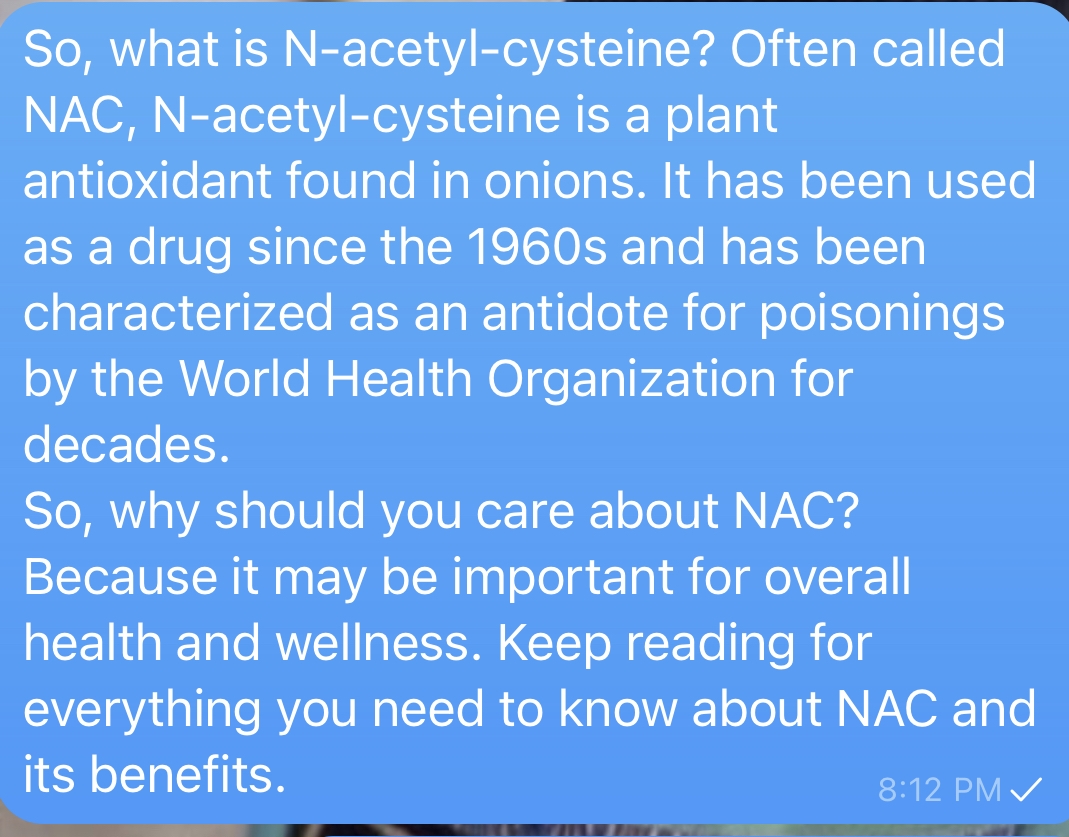First and foremost, NAC is beneficial to the body because of its antioxidant properties (1). Antioxidants — a group of compounds that include other well-known supplements like vitamin C, vitamin E, and astaxanthin — have the important job of helping fight free radical damage and preventing oxidative stress in the body. This is an important job, as oxidative stress has been linked to a wide range of diseases and dysfunctions, including cellular damage and cancer. (2)
NAC acts as an antioxidant in its own right, but it also increases the production of other antioxidants such as glutathione. Glutathione is known as the “master antioxidant” and has demonstrated an ability to fight oxidative stress, support immune health (3), and offer protection from heavy metals (4), making it one of the most important — if not the most important — antioxidant in the body.
NAC has also demonstrated strong anti-inflammatory properties; according to one study, published in Agents and Actions, it works by reducing the activity (5) of inflammatory cytokines and macrophages.
NAC acts as an antioxidant in its own right, but it also increases the production of other antioxidants such as glutathione. Glutathione is known as the “master antioxidant” and has demonstrated an ability to fight oxidative stress, support immune health (3), and offer protection from heavy metals (4), making it one of the most important — if not the most important — antioxidant in the body.
NAC has also demonstrated strong anti-inflammatory properties; according to one study, published in Agents and Actions, it works by reducing the activity (5) of inflammatory cytokines and macrophages.
First and foremost, NAC is beneficial to the body because of its antioxidant properties (1). Antioxidants — a group of compounds that include other well-known supplements like vitamin C, vitamin E, and astaxanthin — have the important job of helping fight free radical damage and preventing oxidative stress in the body. This is an important job, as oxidative stress has been linked to a wide range of diseases and dysfunctions, including cellular damage and cancer. (2)
NAC acts as an antioxidant in its own right, but it also increases the production of other antioxidants such as glutathione. Glutathione is known as the “master antioxidant” and has demonstrated an ability to fight oxidative stress, support immune health (3), and offer protection from heavy metals (4), making it one of the most important — if not the most important — antioxidant in the body.
NAC has also demonstrated strong anti-inflammatory properties; according to one study, published in Agents and Actions, it works by reducing the activity (5) of inflammatory cytokines and macrophages.
0 Comentários
0 Compartilhamentos
1KB Visualizações




